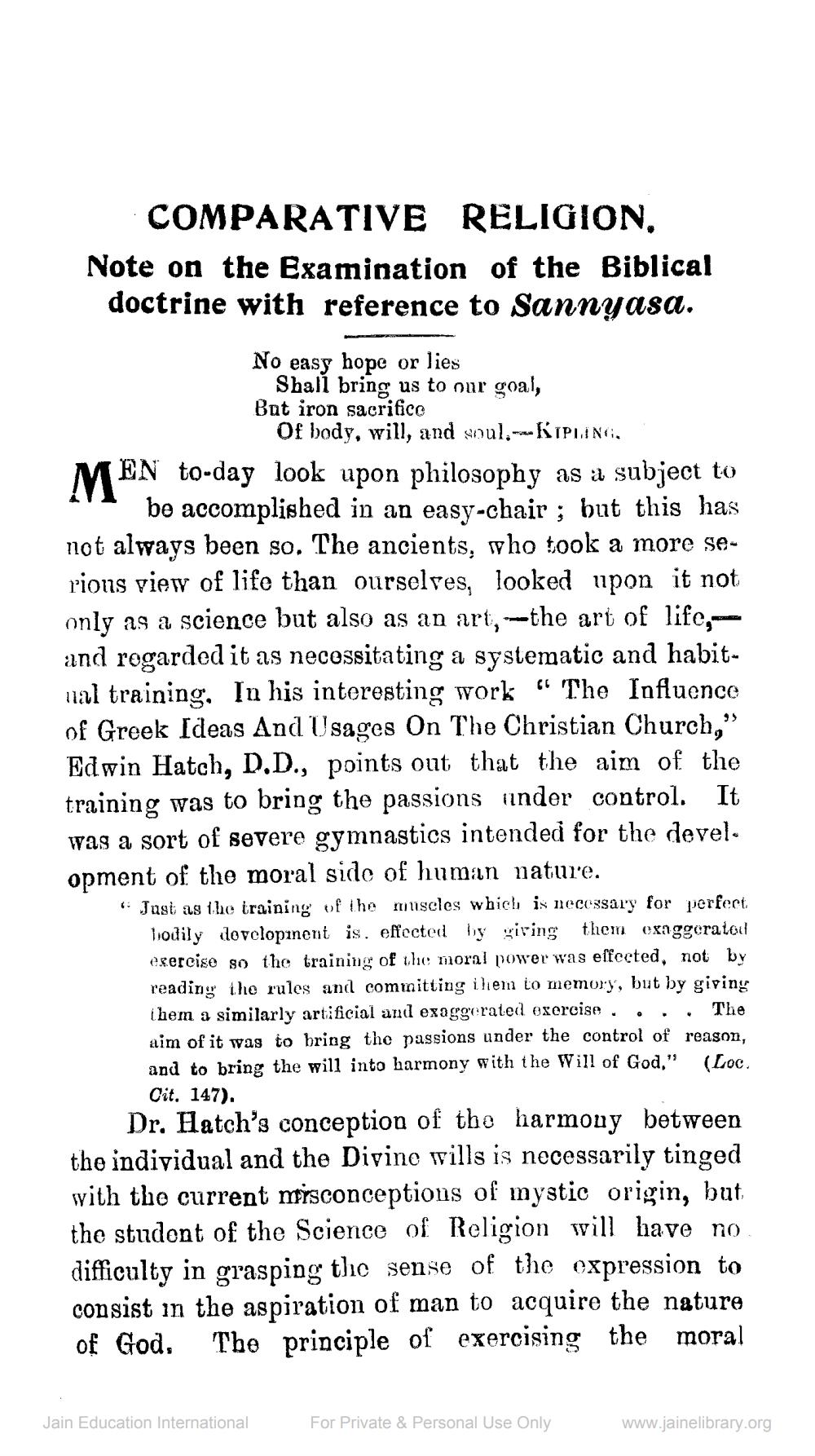________________
COMPARATIVE RELIGION,
Note on the Examination of the Biblical doctrine with reference to Sannyasa.
No easy hope or lies
Shall bring us to our goal,
Jain Education International
But iron sacrifice
Of body, will, and soul.--KIPLING,
ME
EN to-day look upon philosophy as a subject to be accomplished in an easy-chair; but this has not always been so. The ancients, who took a more serious view of life than ourselves, looked upon it not only as a science but also as an art, the art of life,and regarded it as necessitating a systematic and habitual training. In his interesting work "The Influence of Greek Ideas And Usages On The Christian Church," Edwin Hatch, D.D., points out that the aim of the It training was to bring the passions under control. was a sort of severe gymnastics intended for the development of the moral side of human nature.
"Just as the training of the muscles which is necessary for perfect
bodily development is. effected by giving them exaggerated exercise so the training of the moral power was effected, not by reading the rules and committing them to memory, but by giving The them a similarly artificial and exaggerated exercise aim of it was to bring the passions under the control of reason, and to bring the will into harmony with the Will of God," Cit. 147).
(Loc.
Dr. Hatch's conception of the harmony between the individual and the Divine wills is necessarily tinged with the current misconceptions of mystic origin, but the student of the Science of Religion will have no difficulty in grasping the sense of the expression to consist in the aspiration of man to acquire the nature of God. The principle of exercising the moral
For Private & Personal Use Only
www.jainelibrary.org




